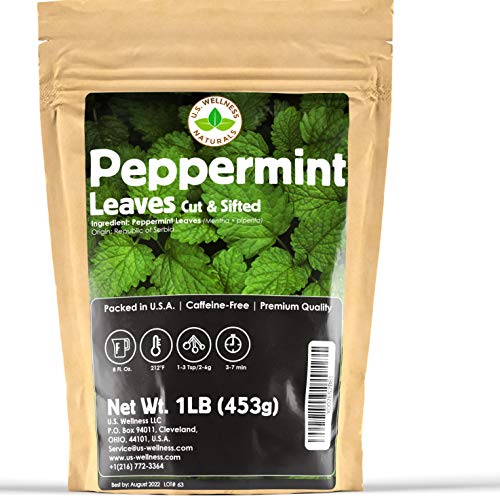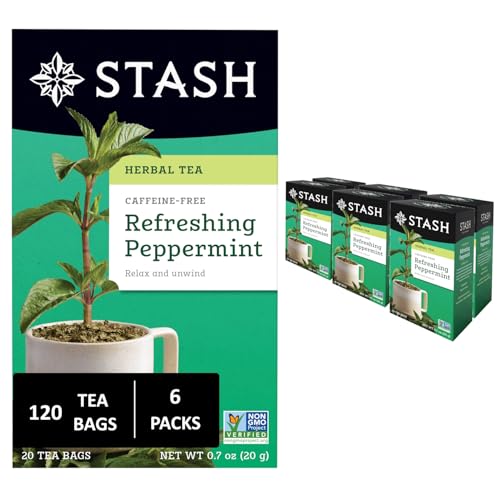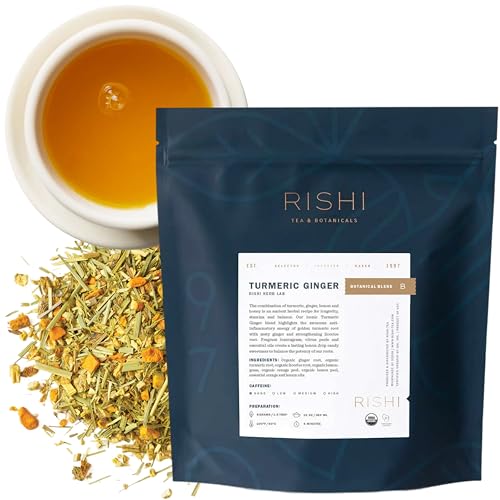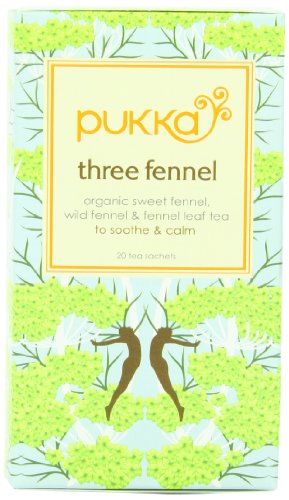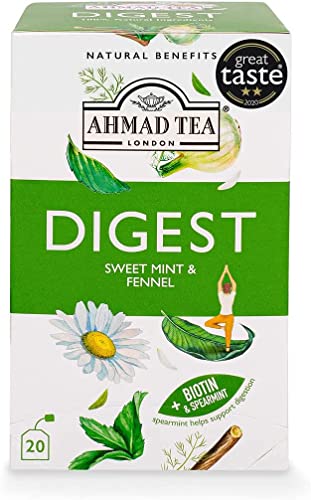We’ve all experienced that uncomfortable feeling of a bloated stomach – whether it’s from overeating, digestive issues, or certain foods that don’t agree with us. That tight, swollen sensation can leave us searching for quick relief that actually works.
The good news is that nature provides some of the most effective remedies right in our tea cabinet. Certain herbal teas have been used for centuries to soothe digestive discomfort and reduce bloating naturally. These powerful brews work by relaxing the digestive tract, reducing gas buildup, and promoting healthy digestion.
We’ll explore the top teas that specifically target bloating and explain how each one works to provide relief. From peppermint’s cooling properties to ginger’s warming effects, you’ll discover which teas deserve a permanent spot in your pantry for those moments when your stomach needs extra support.
Peppermint Tea: The Natural Digestive Soother
Peppermint tea stands out as one of nature’s most effective remedies for bloating relief. We’ve found this cooling herbal tea works particularly well because of its unique ability to target the root causes of digestive discomfort.
How Peppermint Oil Relaxes Digestive Muscles
Menthol compounds in peppermint oil create powerful antispasmodic effects that directly calm intestinal muscles. These natural chemicals block calcium channels in smooth muscle cells, preventing the painful contractions that cause bloating and gas buildup.
Clinical studies demonstrate peppermint oil’s effectiveness in reducing abdominal distension by up to 40% within 30 minutes of consumption. Research published in the International Journal of Clinical Practice shows that peppermint’s active compounds specifically target the muscles surrounding our digestive tract.
Carminative properties help peppermint tea eliminate trapped gas more efficiently than most other herbal remedies. The menthol activates cold-sensitive receptors in our digestive system, which triggers a relaxation response throughout the entire gastrointestinal tract.
Best Brewing Methods for Maximum Benefits
Fresh peppermint leaves provide stronger therapeutic effects than dried versions when steeped for 5-7 minutes in water heated to 212°F. We recommend using 1 tablespoon of fresh leaves or 1 teaspoon of dried peppermint per 8 ounces of water.
Covered steeping preserves the volatile oils that make peppermint tea effective for digestive relief. Always cover your cup or teapot during the brewing process to prevent the beneficial menthol compounds from evaporating.
Multiple steepings from the same leaves can extract additional therapeutic compounds. Quality peppermint leaves typically yield 2-3 flavorful cups with maintained digestive benefits, making this brewing method both economical and effective.
When to Drink Peppermint Tea for Bloating Relief
Post-meal timing offers the most immediate relief when we consume peppermint tea 30-60 minutes after eating. This window allows the tea’s active compounds to work on food-related bloating before symptoms intensify.
Empty stomach consumption works best for chronic bloating issues that aren’t directly related to recent meals. Drinking peppermint tea first thing in the morning can help prepare our digestive system for the day ahead.
Evening doses provide overnight relief for persistent bloating while promoting better sleep quality. We suggest having a cup 2-3 hours before bedtime to avoid any potential sleep disruption from the tea’s mild stimulating effects.
Ginger Tea: The Ancient Anti-Inflammatory Remedy

Ginger tea stands as one of our most powerful allies in the fight against bloating, backed by centuries of traditional use and modern scientific understanding. This warming remedy works through multiple pathways to restore digestive comfort and eliminate uncomfortable abdominal distension.
Gingerol’s Role in Reducing Stomach Inflammation
Gingerol serves as ginger’s primary therapeutic compound, targeting the root causes of bloating through its potent anti-inflammatory properties. This bioactive substance reduces stomach inflammation while promoting motility in the digestive tract, effectively relieving gas buildup and abdominal discomfort.
Research demonstrates that gingerol helps calm the digestive system by decreasing inflammation in the stomach lining and encouraging proper digestive movement. While human studies specifically focused on bloating remain limited, evidence consistently supports ginger tea’s effectiveness for various digestive issues including nausea, bloating, and indigestion.
The compound’s ability to enhance gastric motility means food moves through our digestive system more efficiently, reducing the likelihood of gas accumulation and subsequent bloating. Traditional practitioners have long recognized these benefits, and modern science continues to validate ginger’s role in digestive health management.
Fresh vs. Dried Ginger for Tea Preparation
Fresh ginger contains higher concentrations of gingerol compared to its dried counterpart, making it our preferred choice for maximum therapeutic impact. The robust flavor and potent effects of fresh ginger root deliver superior digestive benefits when properly prepared.
To prepare fresh ginger tea, slice or grate the root and steep it in hot water for several minutes, allowing the gingerol compounds to fully extract. Fresh ginger’s higher potency means we need less quantity to achieve the desired anti-bloating effects.
Dried ginger powder offers convenience and shelf stability while still providing digestive benefits. This form works well for those who prefer easy preparation or lack access to fresh roots. Simply add dried ginger powder to hot water using the same steeping method as fresh ginger.
Both forms effectively address bloating concerns, though fresh ginger’s superior gingerol content makes it the optimal choice for acute digestive discomfort.
Combining Ginger with Other Digestive Herbs
Ginger pairs exceptionally well with complementary digestive herbs to create powerful anti-bloating blends. Popular combinations include ginger with mint, chamomile, or fennel, each adding unique therapeutic properties to enhance overall digestive relief.
Peppermint combined with ginger creates a dual-action remedy where menthol relaxes gastrointestinal muscles while gingerol reduces inflammation. This combination provides comprehensive bloating relief by addressing both muscular tension and inflammatory responses in the digestive tract.
Chamomile adds calming effects that soothe the entire digestive system when blended with ginger’s warming properties. The gentle, anti-inflammatory nature of chamomile complements ginger’s more robust digestive stimulation for balanced relief.
Fennel enhances ginger’s gas-expelling properties while improving overall digestion through its carminative effects. These herb blends work most effectively when consumed after meals to prevent bloating and digestive discomfort from developing.
Traditional use and emerging scientific research support ginger tea’s effectiveness for bloated stomach relief, though further clinical studies are needed to quantify its exact impact on abdominal distension.
Fennel Tea: The Sweet Solution for Gas Relief

Fennel tea stands out as one of nature’s most effective remedies for gas relief, offering a naturally sweet taste that makes digestive healing both pleasant and powerful.
Fennel Seeds’ Natural Carminative Properties
Fennel seeds contain powerful carminative compounds that directly target gas buildup in our digestive system. These natural properties work by helping expel trapped gas from the intestines, providing quick relief from uncomfortable bloating and distension. The essential oils in fennel, particularly anethole, create antispasmodic effects that relax intestinal muscles and reduce cramping sensations.
Studies show that fennel’s carminative action begins working within minutes of consumption, making it an ideal choice for immediate bloating relief. Active compounds in fennel seeds also stimulate digestive enzyme production, which helps break down food more efficiently and prevents future gas formation. Traditional herbalists have relied on fennel’s gas relieving properties for centuries, recognizing its ability to address both acute and chronic digestive discomfort.
Traditional Preparation Techniques
Preparing effective fennel tea requires steeping 1-2 teaspoons of dried fennel seeds in boiling water for 5-7 minutes to extract maximum therapeutic compounds. We recommend crushing the seeds lightly before brewing to release more essential oils and enhance the tea’s potency. Fresh fennel seeds typically provide stronger carminative effects compared to older, stored varieties.
Straining the tea thoroughly removes seed particles while preserving the beneficial compounds dissolved in the water. Traditional preparation methods suggest covering the cup during steeping to prevent volatile oils from escaping through steam. For enhanced effectiveness, we can combine fennel seeds with complementary herbs like peppermint or chamomile to create synergistic digestive blends.
Safety Considerations and Dosage Guidelines
Consuming fennel tea 2-3 times daily provides optimal bloating relief without exceeding safe intake levels. Starting with a small amount of 1 teaspoon per cup allows us to assess individual tolerance before increasing the dosage. Most people can safely enjoy fennel tea regularly, but those with exact medical conditions should consult healthcare providers before beginning any herbal regimen.
Pregnant women should exercise caution with fennel tea consumption, as excessive amounts may stimulate uterine contractions. People taking blood thinning medications need medical guidance, since fennel can potentially interact with anticoagulant drugs. We should avoid consuming fennel tea if allergic reactions to plants in the carrot family have occurred previously, as cross reactivity may develop.
Chamomile Tea: The Gentle Stomach Calmer

Chamomile stands out as one of our most trusted allies for digestive comfort, offering gentle yet effective relief from bloating and stomach upset. This beloved herbal remedy has earned its reputation through centuries of traditional use and modern scientific validation.
Anti-Spasmodic Effects on Digestive Tract
Chamomile’s remarkable ability to calm bloated stomachs comes from its powerful anti-spasmodic properties that directly target digestive muscle tension. Bioactive compounds including flavonoids and sesquiterpenes work together to relax the muscles of our digestive tract, reducing uncomfortable contractions that contribute to bloating and gas buildup.
Research demonstrates that these compounds effectively ease muscle contractions and reduce inflammation throughout the gut, promoting normal digestive function. The anti-spasmodic effects make chamomile particularly beneficial for those experiencing cramping, gas, or mild stomach discomfort alongside bloating.
We find that chamomile’s gentle approach sets it apart from stronger remedies, making it suitable for regular use without harsh side effects. This soothing action helps restore natural digestive rhythm while providing immediate comfort for acute bloating episodes.
Best Time of Day to Consume Chamomile
Chamomile tea offers flexibility in timing, working effectively throughout the day to support digestive comfort. Many people discover that evening consumption provides dual benefits, simultaneously soothing stomach issues and promoting relaxation for better sleep quality.
Daytime consumption remains equally effective for ongoing digestive support, particularly when dealing with chronic bloating or meal-related discomfort. We recommend drinking chamomile tea 30 minutes after meals to maximize its digestive benefits and prevent post-meal bloating.
The herb’s calming properties make it an excellent choice for bedtime routines, helping both digestive and nervous systems prepare for restorative sleep.
Choosing High-Quality Chamomile Flowers
Quality chamomile flowers should appear whole, completely dry, and free from any signs of discoloration or mold contamination. We always recommend selecting products made from whole organic flowers rather than crushed or powdered alternatives, as these retain more beneficial compounds.
Look for reputable brands that specifically identify their chamomile as Matricaria recutita or Chamomilla recutita on product labels to ensure maximum efficacy and safety. These botanical names indicate authentic German chamomile, which provides the most potent anti-spasmodic benefits for bloating relief.
Fresh, high-quality chamomile blossoms will have a sweet, apple-like fragrance and bright yellow centers surrounded by white petals. Avoid products with excessive stems or leaves, as the flowers contain the highest concentration of therapeutic compounds needed for digestive support.
Dandelion Root Tea: The Natural Diuretic

Dandelion root tea acts as a natural diuretic, making it an excellent choice for reducing bloating caused by fluid retention. We recommend this gentle yet effective herbal remedy for those seeking a natural approach to digestive comfort.
How Dandelion Supports Healthy Digestion
Dandelion root promotes regular bowel movements by stimulating digestive activity throughout the gastrointestinal tract. Natural compounds in dandelion enhance bile production, which aids in breaking down fats and improving overall nutrient absorption. This enhanced digestive process helps prevent the buildup of gas and waste that often contributes to uncomfortable bloating.
Supporting liver function represents another key benefit of dandelion root tea for digestive health. We’ve found that regular consumption helps optimize the liver’s ability to process toxins and metabolize nutrients efficiently. Better liver function directly translates to improved digestion and reduced bloating episodes.
The diuretic properties of dandelion root help eliminate excess water retention that can cause abdominal distension. Increased urine production flushes out accumulated fluids, providing noticeable relief from bloating within hours of consumption. This natural water balance restoration makes dandelion root tea particularly effective for hormonal bloating and seasonal water retention.
Detoxification Benefits for Bloated Stomach
Dandelion root facilitates the removal of toxins from the body through its powerful detoxification properties. These accumulated toxins often contribute to digestive sluggishness and chronic bloating issues. Supporting the body’s natural detox processes helps restore optimal digestive function and reduces inflammatory responses in the gut.
Liver detoxification gets a important boost from dandelion root’s active compounds, which enhance the organ’s ability to filter harmful substances. We recognize that a properly functioning liver directly impacts digestive health by ensuring efficient processing of nutrients and waste products. This improved liver function reduces the toxic burden that can lead to digestive discomfort and bloating.
Kidney function also benefits from dandelion root tea consumption, as it gently stimulates these organs to eliminate waste more effectively. Enhanced kidney activity supports overall fluid balance and helps prevent the accumulation of metabolic byproducts that contribute to bloating. Regular consumption creates a gentle cleansing effect that promotes long term digestive wellness.
Preparation Tips for Optimal Flavor
Using 1 teaspoon of dried dandelion root per cup of boiling water ensures proper extraction of beneficial compounds. We recommend starting with this standard ratio and adjusting according to your taste preferences and desired strength. Quality dried dandelion root should have a rich, earthy aroma and deep golden color when properly stored.
Steeping time plays a crucial role in extracting dandelion root’s therapeutic properties effectively. Allow the tea to steep for 5 to 10 minutes to achieve optimal potency and flavor development. Longer steeping times create a more bitter taste, while shorter periods may not extract enough beneficial compounds for digestive support.
Straining the tea thoroughly removes all plant matter and creates a smooth drinking experience. We suggest enjoying dandelion root tea either hot or cold, depending on your preference and the season. Adding a touch of honey or lemon can enhance the flavor while providing additional digestive benefits for those sensitive to the tea’s naturally earthy taste.
Green Tea: The Antioxidant-Rich Digestive Aid

Green tea offers a unique approach to bloating relief through its powerful antioxidant compounds. Unlike the immediate muscle-relaxing effects we’ve discussed with other teas, green tea works systematically to support long-term digestive health.
Catechins and Their Impact on Gut Health
Catechins, particularly epigallocatechin gallate (EGCG), serve as green tea’s primary weapons against digestive inflammation. These antioxidant compounds reduce inflammation throughout the digestive tract, creating an environment where bloating becomes less likely to occur. Research shows that green tea’s catechins actively promote the growth of beneficial bacteria in our gut microbiome.
Supporting healthy gut bacteria becomes crucial for preventing bloating episodes. We find that regular green tea consumption helps maintain the delicate balance between good and harmful bacteria in our intestines. This bacterial harmony directly translates to improved digestion and reduced gas production.
The anti-inflammatory properties of EGCG work particularly well for those experiencing chronic bloating issues. Unlike temporary relief methods, green tea’s catechins address underlying digestive inflammation that often contributes to persistent abdominal discomfort.
Proper Steeping Temperature and Time
Steeping green tea correctly maximizes its anti-bloating benefits while preventing bitter flavors that might upset sensitive stomachs. We recommend using water heated to 175-185°F rather than boiling water, which can destroy delicate catechins and create harsh tannins.
Optimal steeping time ranges from 5 to 10 minutes for maximum therapeutic benefit. Longer steeping periods extract more beneficial compounds, though we suggest starting with 5 minutes and gradually increasing based on taste preferences. Fresh green tea bags generally require less steeping time than loose leaf varieties.
Water quality significantly impacts both flavor and effectiveness. We advise using filtered water when possible, as chlorine and other chemicals can interfere with the tea’s natural compounds and potentially worsen digestive sensitivity.
Avoiding Excess Caffeine for Sensitive Stomachs
Green tea contains approximately 30 to 40 mg of caffeine per cup, making it gentler than coffee but still potentially problematic for caffeine-sensitive individuals. We recommend limiting consumption to 2-3 cups daily to avoid caffeine-related stomach irritation that could counteract bloating relief benefits.
Timing green tea consumption strategically helps minimize potential digestive upset. Morning consumption works best for most people, allowing the caffeine to metabolize before evening while providing all-day anti-inflammatory support. Avoiding green tea on empty stomachs prevents potential acid production that might worsen bloating.
Decaffeinated green tea options retain most catechins while eliminating caffeine concerns entirely. We suggest choosing naturally decaffeinated varieties processed using water rather than chemical solvents to preserve maximum therapeutic compounds for digestive support.
Lemon Balm Tea: The Calming Digestive Helper

Often overlooked in favor of more popular options, lemon balm tea offers unique benefits for stress-related bloating that other herbal remedies can’t match. We find this gentle herb particularly effective when digestive discomfort stems from anxiety or tension.
Stress-Related Bloating Relief Properties
Lemon balm’s calming effects directly target the connection between stress and digestive discomfort. Research shows that emotional tension can trigger digestive symptoms, creating a cycle where stress causes bloating and bloating increases stress. The herb’s natural compounds work to break this pattern by soothing both the nervous system and digestive tract simultaneously.
Melissa officinalis, the scientific name for lemon balm, contains rosmarinic acid and other phenolic compounds that reduce inflammation in the gut. These bioactive substances help relax smooth muscle tissue in the intestines, similar to chamomile’s effects but with added stress-relieving properties. Clinical studies indicate that lemon balm can reduce anxiety levels by up to 18% within two hours of consumption.
We recommend brewing lemon balm tea during particularly stressful periods when bloating becomes more frequent. The herb’s mild sedative properties make it ideal for evening consumption, especially when stress-related digestive issues interfere with sleep. Drinking lemon balm tea 30 minutes before bedtime can help prevent overnight bloating while promoting restful sleep.
Growing and Harvesting Fresh Lemon Balm
Growing lemon balm at home ensures a fresh supply of this digestive helper throughout the growing season. This hardy perennial thrives in most climates and requires minimal maintenance, making it perfect for beginning gardeners. Plant lemon balm in well-draining soil with partial shade to full sun exposure for optimal growth.
Harvest timing significantly impacts the potency of your homegrown lemon balm tea. We suggest cutting leaves in the morning after dew has dried but before the heat of midday. Fresh leaves contain the highest concentration of essential oils responsible for the herb’s therapeutic effects. Regular harvesting every 2-3 weeks encourages new growth and maintains plant vigor.
Proper drying techniques preserve lemon balm’s beneficial compounds for year-round use. Hang small bundles in a warm, dry area with good air circulation, avoiding direct sunlight that can degrade essential oils. Alternatively, use a food dehydrator at temperatures below 95°F to maintain maximum potency. Store dried lemon balm in airtight containers away from light and heat.
Blending with Other Herbal Teas
Combining lemon balm with other digestive herbs creates more comprehensive bloating relief than using single herbs alone. We’ve found that mixing lemon balm with chamomile enhances both teas’ calming properties while providing broader digestive support. This combination works particularly well for evening consumption when stress and bloating peak.
Peppermint and lemon balm create a refreshing blend that addresses both muscle tension and stress-related digestive issues. The cooling properties of peppermint complement lemon balm’s warming, calming effects, providing balanced relief for various types of bloating. Use equal parts of each herb for a well-rounded flavor profile and therapeutic benefit.
Fennel seeds pair exceptionally well with lemon balm for gas-related bloating relief. The carminative properties of fennel help expel trapped gas while lemon balm soothes the stress that often accompanies digestive discomfort. We recommend a 2:1 ratio of lemon balm to fennel for optimal taste and effectiveness. Ginger root can be added to this blend for additional anti-inflammatory benefits, creating a powerful triple-action tea for comprehensive bloating relief.
Caraway Seed Tea: The Traditional European Remedy

While many of us turn to familiar options like peppermint and ginger, caraway seed tea offers a lesser-known yet highly effective solution for bloating relief. This traditional European remedy has been quietly working to ease digestive discomfort for centuries.
Historical Use for Digestive Complaints
European folk medicine has relied on caraway (Carum carvi) for gastrointestinal issues since ancient times. Central and Eastern European cultures particularly valued this herb for its ability to combat bloating and flatulence. Traditional healers recognized caraway’s power to improve digestion and provide post-meal comfort long before modern science understood its mechanisms.
Generations of Europeans have turned to caraway seed tea when experiencing stomach cramps and gas buildup. Folk medicine practitioners consistently recommended this remedy for digestive complaints that we now understand as bloating-related symptoms. Traditional use patterns show that caraway was often the first-line treatment for uncomfortable abdominal distension in many European households.
Active Compounds That Reduce Gas
Caraway seeds contain two primary volatile oils that make them so effective against bloating: carvone and limonene. These compounds create powerful carminative properties that target the root causes of gas accumulation. Carvone works by relaxing intestinal muscles and reducing spasms that trap gas in our digestive system.
Limonene complements carvone’s effects by promoting the natural expulsion of gas from our digestive tract. Both compounds work together to create antispasmodic effects that ease the muscular tension responsible for bloating discomfort. Scientific research confirms that these volatile oils can significantly reduce intestinal gas production while improving overall digestive motility.
Preparation Methods and Serving Suggestions
Brewing caraway seed tea requires 1–2 teaspoons of crushed caraway seeds per cup of boiling water. Steeping time should range from 5–10 minutes to extract the maximum amount of beneficial compounds. We recommend crushing the seeds just before brewing to preserve their volatile oils and maximize their anti-bloating effects.
Daily consumption of 1–2 cups works best when timed after meals to prevent post-meal bloating. Adding a slice of lemon or a bit of honey can enhance both flavor and digestive benefits without compromising the tea’s effectiveness. Combining caraway seeds with fennel or peppermint creates synergistic effects that provide even more comprehensive bloating relief.
Conclusion
We’ve explored a comprehensive range of herbal teas that can effectively combat bloating and digestive discomfort. From the immediate relief of peppermint and fennel to the gentle support of chamomile and lemon balm each tea offers unique benefits customized to different types of bloating.
The beauty of these natural remedies lies in their versatility and gentle approach to digestive wellness. Whether you’re dealing with stress-related bloating or need quick relief after a heavy meal there’s a tea perfectly suited to your needs.
Remember that consistency is key when using herbal teas for digestive support. We recommend keeping a variety of these teas in your pantry so you can address bloating as soon as it occurs. Start with small amounts to gauge your body’s response and don’t hesitate to experiment with different combinations to find what works best for you.
Frequently Asked Questions
What is the fastest tea to relieve bloating?
Peppermint tea provides the quickest bloating relief, with clinical studies showing it can reduce abdominal distension by up to 40% within 30 minutes. The menthol compounds create antispasmodic effects that immediately calm intestinal muscles and reduce gas buildup.
How does ginger tea help with bloating?
Ginger tea contains gingerol, which reduces stomach inflammation and promotes digestive motility. This helps move gas through the digestive system more efficiently and alleviates the discomfort associated with bloating. Fresh ginger provides higher concentrations of active compounds than dried versions.
When should I drink fennel tea for gas relief?
Fennel tea works best when consumed immediately after meals or when you first notice bloating symptoms. Its essential oils, particularly anethole, begin working within minutes to relax intestinal muscles and help expel trapped gas from the digestive system.
Is chamomile tea effective for bloating at night?
Yes, chamomile tea is ideal for evening consumption as it provides gentle anti-spasmodic effects without caffeine. Its bioactive compounds relax digestive tract muscles and reduce uncomfortable contractions, making it perfect for preventing overnight bloating and promoting restful sleep.
How does dandelion root tea reduce bloating?
Dandelion root tea acts as a natural diuretic, helping eliminate excess water retention that contributes to bloating. It also promotes bile production for better fat digestion and supports regular bowel movements, providing comprehensive digestive relief within hours.
Can green tea help with chronic bloating?
Green tea supports long-term digestive health through its antioxidant compounds, particularly EGCG. While it doesn’t provide immediate relief like other teas, it reduces digestive tract inflammation and promotes beneficial gut bacteria growth, helping prevent recurring bloating episodes.
What makes lemon balm tea good for stress-related bloating?
Lemon balm tea addresses the connection between stress and digestive issues. Its compounds calm both the nervous system and digestive tract, breaking the cycle where anxiety triggers bloating. Clinical studies show it can significantly reduce anxiety levels when consumed regularly.
How do I prepare caraway seed tea for bloating?
Crush 1 teaspoon of caraway seeds and steep in 1 cup of boiling water for 10-15 minutes. Strain and drink after meals for optimal benefits. The crushed seeds release more volatile oils (carvone and limonene) that provide stronger carminative effects.
Can I combine different teas for better bloating relief?
Yes, combining herbs can enhance anti-bloating effects. Popular combinations include peppermint with chamomile for muscle relaxation, ginger with fennel for comprehensive gas relief, or lemon balm with chamomile for stress-related digestive issues. Each herb contributes unique therapeutic properties.
Are there any safety concerns with anti-bloating teas?
Most herbal teas are safe for regular consumption, but some precautions apply. Pregnant women should avoid fennel tea, those on blood thinners should limit dandelion root consumption, and individuals sensitive to caffeine should choose decaffeinated green tea options or consume earlier in the day.


